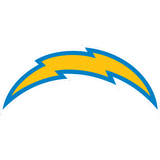
Spanos says Chargers to stay in San Diego in 2016

SAN DIEGO (AP) -- Chargers Chairman Dean Spanos said Friday that the team will play in San Diego in 2016, and he'll work with politicians and the business community to try to resolve a long, bitter fight over a new stadium.
Spanos' statement was posted on the team website shortly after the Union-Tribune reported that the Chargers had agreed in principle to join the Los Angeles Rams in a stadium expected to open in Inglewood in 2019.
It also came shortly after Spanos invited Mayor Kevin Faulconer and County Supervisor Ron Roberts to his La Jolla home for an afternoon meeting.
"I am committed to looking at this with a fresh perspective and new sense of possibility," Spanos' statement said.
The development was a relief to fans who feared the Chargers would leave their home of 55 seasons and join the Rams in Los Angeles in the fall.
Spanos said he hoped the Chargers would remain in San Diego "for the long term in a new stadium."
"I have met with Mayor Faulconer and Supervisor Roberts and I look forward to working closely with them and the business community to resolve our stadium dilemma," Spanos said. "We have an option and an agreement with the Los Angeles Rams to go to Inglewood in the next year, but my focus is on San Diego.
"This has been our home for 55 years, and I want to keep the team here and provide the world-class stadium experience you deserve. Everyone on both sides of the table in San Diego must now determine the best next steps and how to deploy the additional resources provided by the NFL."
Spanos' announcement came more than two weeks after NFL owners voted to approve Rams owner Stan Kroenke's plans to build a stadium in Inglewood near Los Angeles. A competing proposal by Spanos and Oakland Raiders owner Mark Davis to build a stadium in Carson was defeated.
While the owners gave Spanos the option to relocate to Los Angeles, the league said the Chargers and Raiders would each get an additional $100 million to try to get new stadium deals in their home markets. That money is in addition to a $200 million loan from the league available to each team.
"We are very supportive of the decision by Dean Spanos to continue his efforts in San Diego and work with local leaders to develop a permanent stadium solution," Commissioner Roger Goodell said in a statement. "NFL ownership has committed $300 million to assist in the cost of building a new stadium in San Diego. I have pledged the league's full support in helping Dean to fulfill his goal."
The next steps are uncertain. Faulconer has insisted a stadium measure be put on the ballot. Faulconer and Roberts said earlier this month that a November ballot issue is more realistic than trying to rush one onto the June ballot.
They have also held firm on their offers of public money: $200 million from the city and $150 from the county. Their proposal calls for the Chargers to contribute $353 million, which could be defrayed by the additional $100 million from the NFL and a naming rights deal.
The sides held three brief negotiating sessions before the team walked away from the table in June. A financing plan was never discussed. The Chargers then focused all their efforts on Carson.
"We appreciate Mr. Spanos' commitment to staying in San Diego for the 2016 season to work with the region on a stadium solution," Faulconer and Roberts said in a joint statement. "We look forward to discussing his vision for a new San Diego home for the Chargers, and will be working with him and our negotiating team on a fair and viable plan to put before voters. We have agreed to meet again in the near future."
Faulconer and Roberts contend that building a new stadium at the Qualcomm site in Mission Valley would be quicker and cheaper than the Chargers' desire to build a stadium downtown as part of a noncontiguous expansion of the convention center.
It's possible the Chargers could launch their own citizens' initiative.
The Chargers have been trying to replace Qualcomm since 2002, but numerous upheavals at City Hall and the economic downturn in 2008 contributed to a lack of momentum. The long-running saga turned nasty in the last year as team lawyer Mark Fabiani fiercely opposed Faulconer's proposals.
Spanos' scorched-earth tactics angered many fans, who nonetheless turned out for what many thought was a farewell game when the Chargers beat the Miami Dolphins at home on Dec. 20.
Several thousand fans stayed after that game, and star players Philip Rivers, Malcom Floyd, Eric Weddle and Antonio Gates, and even coach Mike McCoy, came back out to greet them and sign autographs. Rivers took off his cleats, signed them and gave them away.










